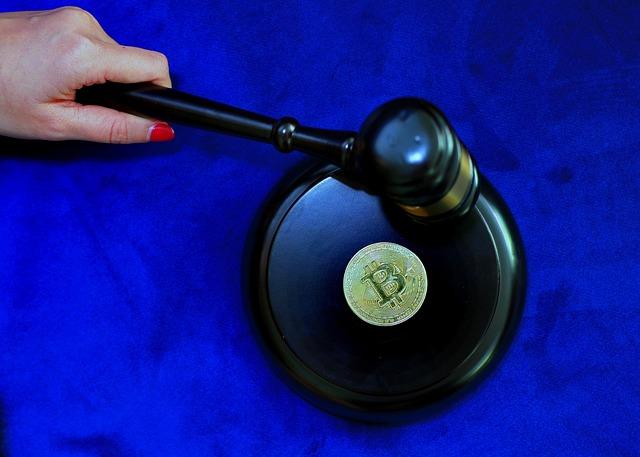The Court of Justice of the European Union (CJEU) has delivered a landmark ruling that could significantly alter the landscape of sports arbitration. In a decision closely watched by athletes, sports bodies, and legal experts alike, the CJEU has opened the door for increased judicial review of rulings handed down by the Court of Arbitration for Sport (CAS). This development, highlighted in a recent analysis by Pinsent Masons, raises pivotal questions about the balance between arbitration autonomy and legal oversight within the international sports dispute resolution framework.
CJEU Decision Marks Shift in Oversight of Sports Arbitration
In a landmark judgment, the Court of Justice of the European Union (CJEU) has significantly altered the landscape of sports arbitration by clarifying that rulings from the Court of Arbitration for Sport (CAS) are subject to judicial review under certain circumstances. This decision challenges the long-held assumption of the absolute finality of CAS awards, opening the door for national courts within the EU to scrutinize arbitration processes and outcomes, particularly when procedural fairness or fundamental legal principles are in question. The ruling has sent shockwaves through the sports law community, emphasizing the need for enhanced transparency and accountability in international sports dispute resolution.
Key implications of this decision include:
- Increased judicial oversight: National courts may intervene more readily when arbitral awards are alleged to conflict with EU law or fundamental rights.
- Greater protection for athletes: Access to effective remedies is bolstered, ensuring that arbitration does not circumvent legal safeguards.
- Potential for procedural reforms: Sports arbitration bodies may need to reassess their rules and procedures to withstand heightened scrutiny.
The shift not only redefines the balance between autonomy and supervision in sports arbitration, but also heralds a new era where sports governance must align more closely with EU legal standards, potentially influencing global sports dispute resolution mechanisms.
| Aspect | Previous Position | CJEU Ruling Impact |
|---|---|---|
| Finality of CAS Awards | Generally unquestioned | Open to limited judicial review |
| Judicial Intervention | Minimal interference | Enhanced oversight permitted |
| Athlete Remedies | Restricted appeal paths | Improved access to justice |
Implications for the Court of Arbitration for Sport’s Authority
The recent CJEU decision significantly challenges the traditionally unassailable position of the Court of Arbitration for Sport (CAS) by allowing for potential judicial review of its rulings in certain circumstances. This development undermines the long-held perception of CAS as the final and exclusive arbiter in international sports disputes, opening avenues for national courts to intervene when procedural fairness or fundamental rights are at stake. Such a shift could lead to increased litigation outside the sporting adjudication framework, affecting CAS’s role as the ultimate dispute resolver.
Several key implications emerge from this ruling:
- Judicial oversight may now extend to vertical checks on CAS, altering the balance between sports autonomy and legal accountability.
- Enhanced transparency standards could be demanded from CAS proceedings, as courts scrutinize decisions more closely.
- Fragmentation risks arise, with differing interpretations by national courts potentially leading to inconsistent outcomes.
| Aspect | Before CJEU Ruling | After CJEU Ruling |
|---|---|---|
| CAS Finality | Generally absolute | Potentially subject to judicial review |
| National Court Role | Minimal intervention | Increased oversight in defined cases |
| Dispute Resolution Landscape | Centralized under CAS | Possibility of fragmentation |
Legal Experts Weigh Challenges and Opportunities in Sports Disputes
The recent CJEU ruling has ignited a significant debate among legal experts regarding the future of sports dispute resolution. Traditionally, the Court of Arbitration for Sport (CAS) has offered a nearly unassailable position as the final arbiter in sports-related conflicts. However, the judgment introduces the possibility that CAS decisions could be subject to judicial review under certain circumstances, challenging the long-held perception of its absolute authority. Experts emphasize that this development creates both hurdles and openings for stakeholders in sports law, as the intersection of public policy considerations and arbitration autonomy becomes more pronounced.
Industry professionals have identified several key areas where this ruling could have considerable impact:
- Increased Accountability: CAS may face greater scrutiny, ensuring decisions align more closely with EU law principles.
- Extended Litigation Risks: Parties might engage in prolonged legal battles, potentially delaying resolution.
- Enhanced Legal Certainty: Judicial oversight may standardize outcomes and strengthen legal predictability.
- Greater Access to Justice: Athletes and clubs could benefit from additional avenues to challenge unfair or biased rulings.
| Challenge | Opportunity |
|---|---|
| Potential backlog in courts | Improved transparency in CAS decisions |
| Increased legal costs | Balanced power dynamics between athletes and organizations |
| Risk of undermining arbitration efficiency | Stronger alignment with EU legal standards |
Guidance for Athletes and Federations Navigating Future Reviews
In light of the recent CJEU ruling, athletes and sports federations must carefully recalibrate their strategies when considering challenges to Court of Arbitration for Sport (CAS) decisions. While the decision signals a potential shift towards enhanced judicial oversight, it does not imply an open invitation to unlimited appeals. Stakeholders should focus on identifying clearly defined legal or procedural grounds that could justify review, rather than relying on mere dissatisfaction with arbitral outcomes. Preparing thorough documentation and expert legal opinions will be essential to navigating the complexities of this evolving legal landscape.
To better understand the practical implications, consider key factors guiding future review attempts:
- Jurisdictional boundaries: Ensure that the scope of the challenge aligns with EU legal principles highlighted by the CJEU.
- Timeliness: Adhere strictly to procedural deadlines, as courts are unlikely to entertain late submissions.
- Grounds for review: Focus on potential breaches of fundamental rights, procedural fairness, or inconsistencies in the application of substantive law.
| Consideration | Best Practice |
|---|---|
| Document Preparation | Comprehensive, legally robust evidence |
| Legal Representation | Engage specialists in EU sports law |
| Risk Assessment | Evaluate likelihood of success vs. reputational impact |
In Conclusion
The CJEU’s recent ruling marks a significant development in the landscape of sports dispute resolution, potentially reshaping the role and oversight of the Court of Arbitration for Sport. By opening the door for judicial review of CAS decisions under certain conditions, the judgment introduces new avenues for legal scrutiny that may enhance transparency and accountability within sports arbitration. As stakeholders in the sports industry digest the implications of this precedent, the balance between arbitration autonomy and judicial oversight will remain a key area to watch in the coming months. Pinsent Masons will continue to monitor these developments and their impact on sports law globally.





